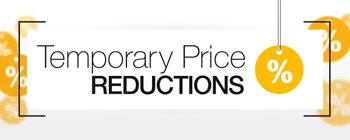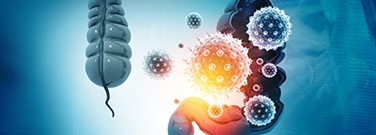Preserving the Human Microbiome
An international team of scientists wants to create a way to safeguard humanity’s long-term health. Taking a cue from the many seed vaults that protect crop diversity from natural or man-made disasters, they advocate an international Microbiota Vault to help maintain human microbiomes to help prevent or treat diseases in the future.
Many metabolic, immune, and cognitive diseases, like obesity, diabetes, asthma, allergies, inflammatory bowel disease, and autism have increased since the mid-1900s. Incidence has risen both in industrialized and developing countries. In addition to their negative health effects, treating these conditions is expensive; the cost of caring for chronical illnesses competes with preventative care needs.
Scientists are just now beginning to understand the human microbiome ‒ the ecosystem of bacteria, viruses, and fungi that live within and on our bodies. The microbiome supports our health, but antibiotics and processed foods may be causing the extinction of some important microbial residents. These changes may cause the loss of an ancestral microbial heritage developed over millions of years of evolution.
A team of independent experts at two Switzerland-based firms, EvalueScience and advocacy agree that such a project is a good idea. “If we are just at the beginning of really understanding and elucidating what is the role of the microbiota, it is of course precautionary to at least safeguard part of this diversity before it just goes away,” says Dominik Steiger, chief operating officer of EvalueScience.
Animal studies suggest that “missing” microorganisms or a lack microbial diversity may contribute to obesity, inflammatory bowel disorders, Clostridium difficile infections, ALS, and other health conditions. Many modern practices ‒ births by Cesarean section, low-fiber diets, overusing antibiotics ‒ may also contribute to poor health.
“Rural peoples are urbanizing and traditional peoples living in savannas and in jungles are moving to cities,” says Maria Gloria Dominguez-Bello, a microbiologist at Rutgers University in New Brunswick, New Jersey and a leader of the Microbiota Vault initiative. “What we see is that we are losing [microbiome] diversity, and in parallel there is a correlation with increase in chronic diseases.”
Dominguez-Bello and researchers in Venezuela, Bolivia, Peru and Brazil have collected and analyzed stool samples from various indigenous people. She and her colleagues published a 2017 report (in Science) that showed less-diverse microbiomes for those in more-industrialized societies. In the United States, average gut diversity is only about half of Amerindians who live remotely in South America, she says.
Research collections like Dominguez-Bello’s have sometimes been in jeopardy, so the idea of a central and secure repository, supported by local branches, is popular. Switzerland and Norway have both been suggested as potential and politically stable locations. Specimens could be cryopreserved or possibly lyophilized (freeze-dried).
If operated as a non-profit, it may also encourage more microbiome collections and offer training courses. Dominguez-Bello had planned a pilot course in Lima, Peru, but the schedule has been interrupted by the COVID-19 pandemic.
Initial funding would likely come from research entities and philanthropic organizations but could later expand include government funding.
“The Microbiota Vault really seems like it has huge potential to benefit human health,” says Matthew Kelly, a pediatrician and global health specialist at Duke University (who is not involved with the initiative). Kelly also cautions that the project’s ethics are complex and researchers will need to clearly communicate what participation could mean for indigenous community participants.
Discussion Questions
- In what parts of your body might you find lots of microorganisms?
- How does treatment with antibiotics affect the human microbiome?
Vocabulary
- Microbiome
- Respository
- Vault



